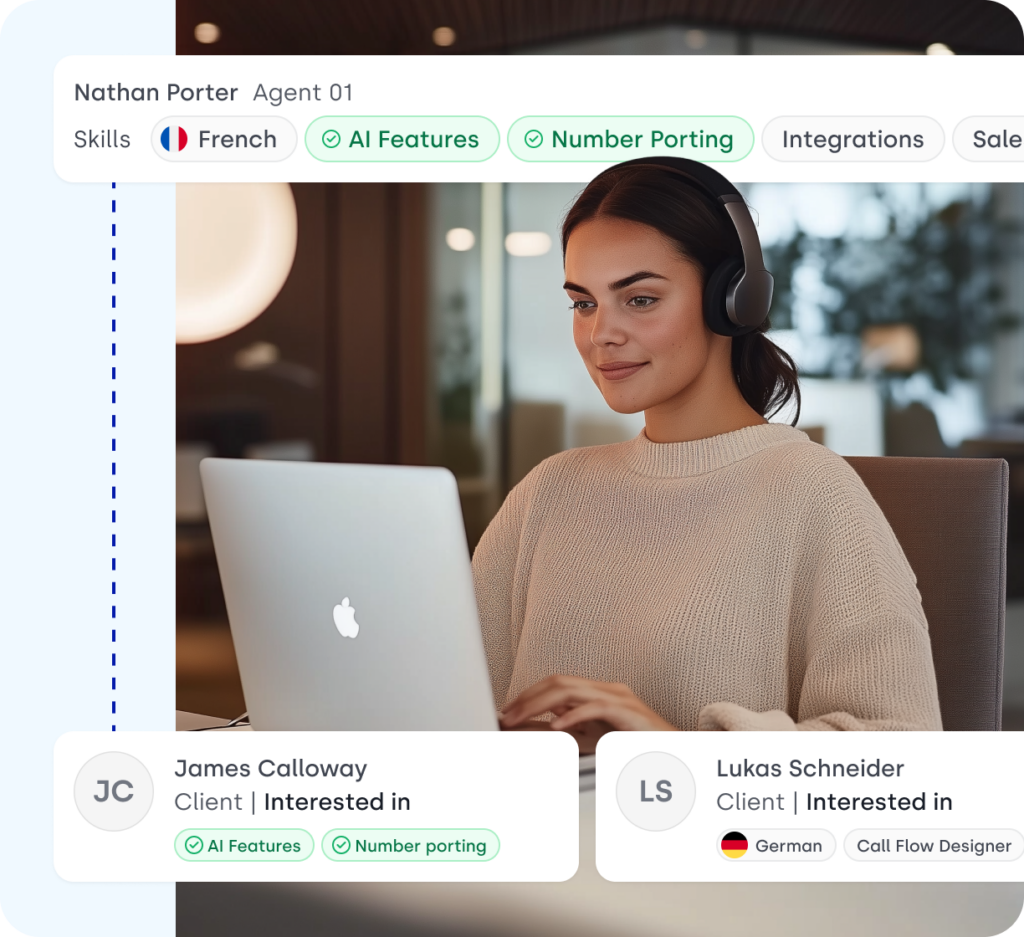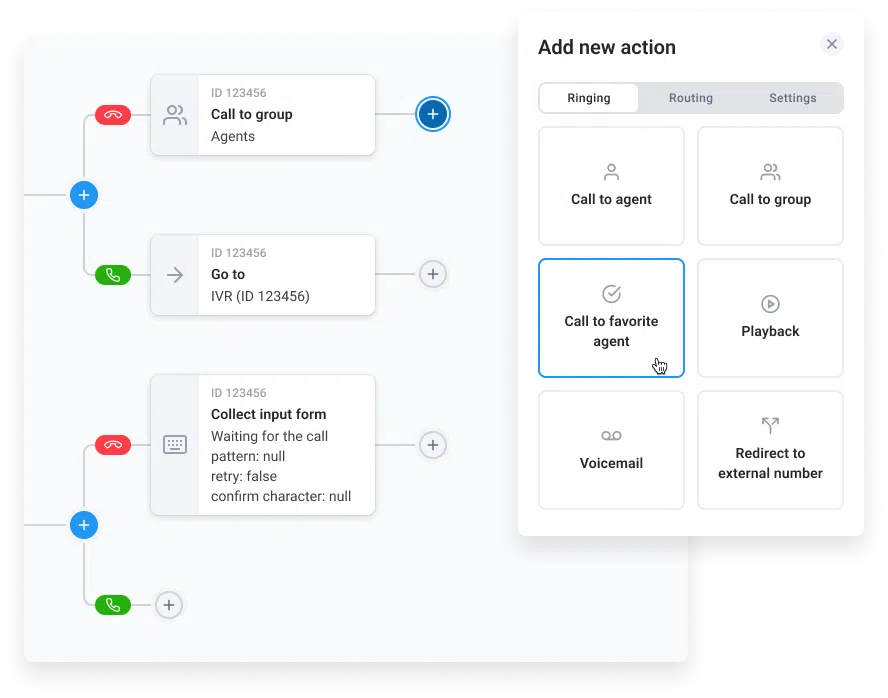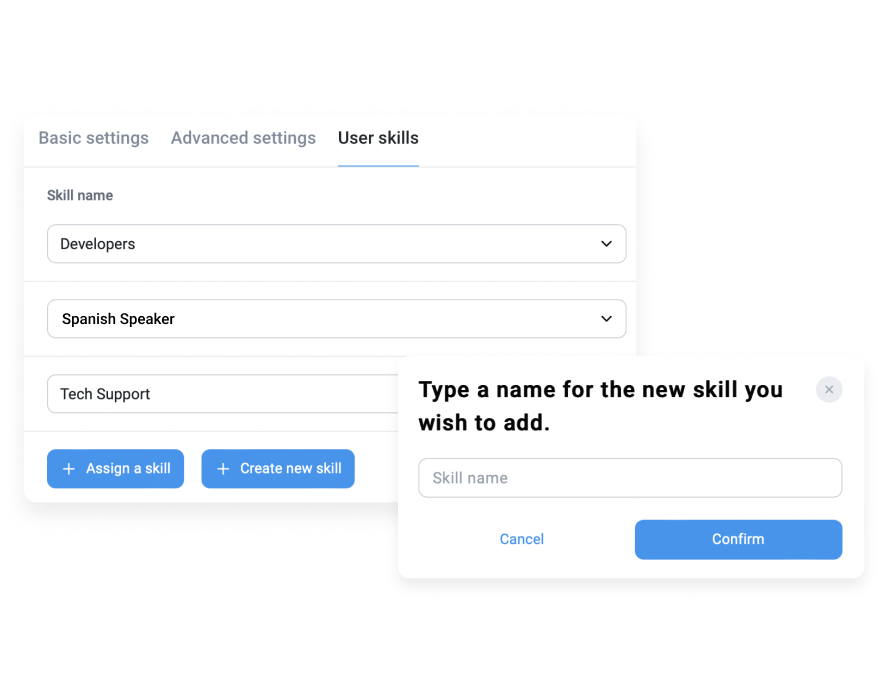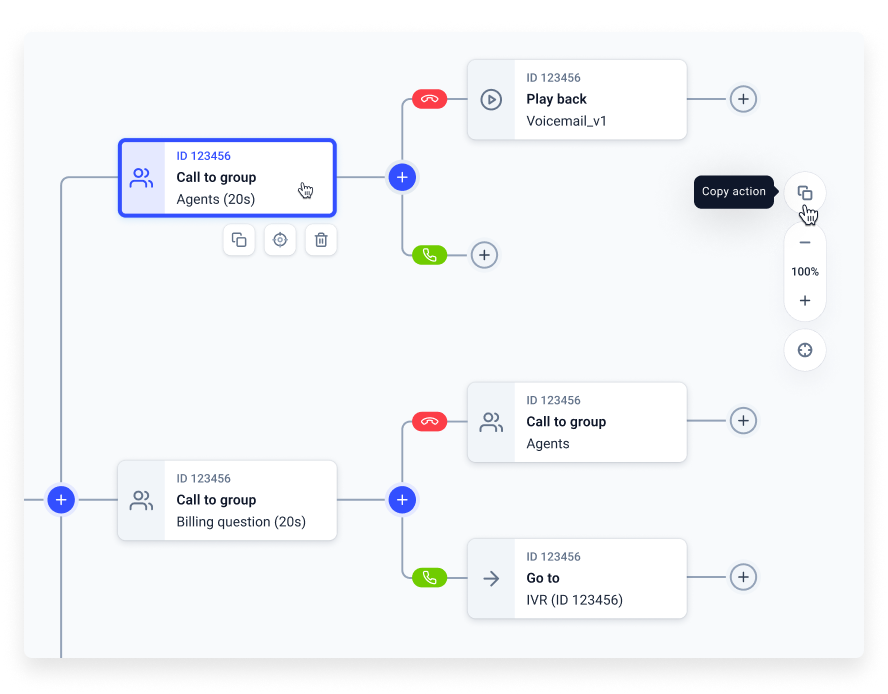- Solutions
- Solutions primary
- BY TEAM
- BY INDUSTRY
- BY USE
- BY SIZE
- View all solutions
- Solutions secondary
- Solutions primary
- AI
- Features
- Features primary
- Most popular
- first column
- second column
- third column
- fourth column
- View all features
- Most popular
- Features secondary
- Choosing the right plan
- Features primary
- Integrations
- Integrations primary
- MOST POPULAR
- first column
- second column
- View all integrations
- NEW
- first column
- second column
- View all integrations
- MOST POPULAR
- Integrations secondary
- Integrations primary
- Pricing
- Resources
- Resources primary
- Most popular
- first column
- second column
- third column
- Most popular
- Resources secondary
- Latest Blogs
- Try CloudTalk
- Resources primary
- Partners
Flagship Feature
Deliver Expert Support with
Deliver Expert Support with
Skill-Based Routing
Elevate every interaction. Skill-based routing ensures customers reach agents with the precise expertise they need. Maximize first-call resolution and create personalized, satisfying experiences that build loyalty.

We’ve helped thousands of global companies
Case studies featuring customers who are building faster.
What is Skill-Based Routing?
Ever called customer support only to be passed around from one agent to another? Skill-Based Routing solves that problem by automatically directing callers to the most qualified agents based on their unique needs.
Instead of just sending calls to the next available person, this system matches customers with specialists based on their expertise, language, or department, ensuring faster resolutions and greater efficiency.

How Does Skill-Based Routing Work?
When a call comes in, the system analyzes predefined criteria—such as the caller’s reason for contact, language preference, or past interactions—and routes them to the most qualified agent available.
For example, if a customer selects “Technical Support” from an IVR menu, skill-based call routing will automatically direct to an agent with IT expertise. If a caller’s number is from Spain, they might be routed to a Spanish-speaking representative.
You eliminate guesswork, reduce misrouted calls, and ensure customers get the help they need faster and with less frustration.

Smart Routing
Guide Your Customers with Confidence
Direct your customers to the right agent or department
in the best way possible.
How to Set Up Caller-Based Routing in CloudTalk
- In your CloudTalk account, click the left-hand side Numbers tab on the Dashboard.
- Click the blue pencil icon next to the number you want to configure.
- In the call flow, click the + icon where you want to insert the condition splitter.
- Choose an action (e.g., route to a specific agent or group) for calls that meet certain criteria.
- Click Save flow to apply your changes

Frequently asked questions
Everything you need to know about the product and billing.
When should a company consider using Skill-Based Routing?
Implement Skill-Based Routing to manage complex interactions, match customers with qualified agents, and improve service efficiency across products, languages, and support needs.
How to set up routing rules?
Set routing rules by defining skills for each inquiry, then match them to agent expertise. Use call center tools to route by knowledge, tech skills, or language—and update as needs evolve.
What are the types of skills-based routing?
The types of skills-based routing include:
– Product Expertise Routing: Connects customers with agents who have specialized knowledge about specific products or services.
– Technical Skill Routing: Directs inquiries to agents with the technical skills required to resolve complex issues.
– Language Proficiency Routing: Routes calls to agents fluent in the customer’s preferred language.
– Customer Profile Routing: Matches customers with agents based on their history or profile tags, such as high-value or at-risk customers.
How does omnichannel routing improve customer experience?
Omnichannel routing ensures consistent, seamless support across all channels by tracking interactions and connecting customers to the right agent based on history and preferences.
What is a skills-based routing algorithm?
A skills-based routing algorithm is a set of rules and logic used by call center software to match customer inquiries with the best-suited agents by analyzing skills, needs, and history, ensuring efficient, personalized support.
How does skills-based routing differ from queue-based routing?
Skills-based routing differs from queue-based routing in that it focuses on matching customers with agents based on specific skills and expertise, rather than simply distributing calls based on their order in a queue.
How does skills-based routing differ from ACD routing?
Skills-based routing differs from Automatic Call Distribution (ACD) routing in that it prioritizes matching customer inquiries with agents based on their specific skills and qualifications, while ACD routing generally distributes calls based on predefined rules like round-robin or least-busy agent.



Still have questions?
Can’t find the answer you’re looking for? Please chat with our team.
Ready to get started?
Join over 4,000+ modern companies that already trust CloudTalk to have MORE and BETTER calls.






















